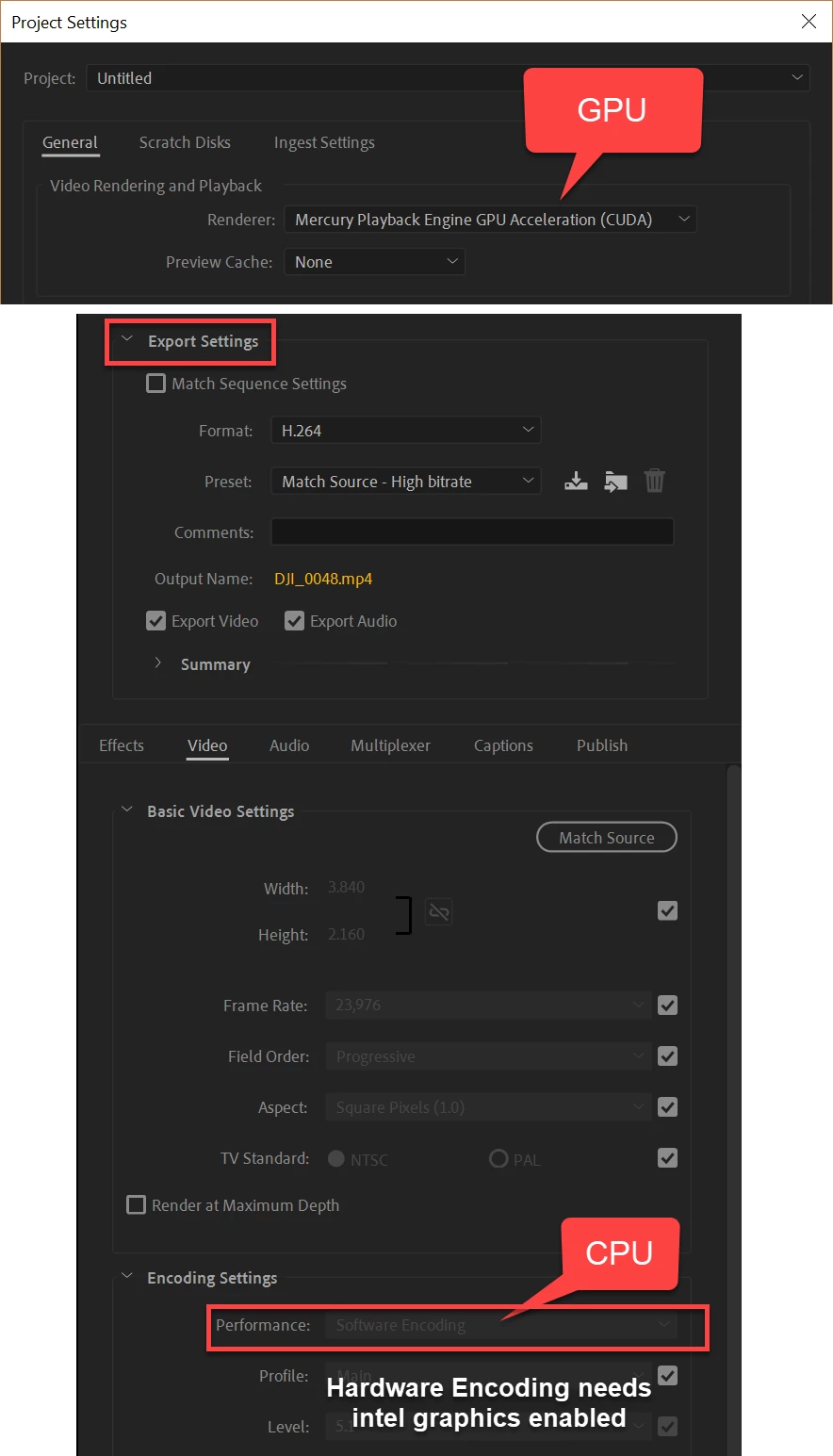PP-2018 - CUDA not being used with GTX 750 Ti - Options?
This is my current system:
Premiere Pro 2018 (Version 12.1.2, Build 69) - I have avoided upgrading to PP2019 as I have read that 4GB CUDA memory is required.
NVIDIA Driver: 430.86
Graphic Card: GeForce GTX 750 Ti, 640 CUDA Cores, 2048 MB GDDR5 Memory
Source video material: 4k Video from a Panasonic FZ300 camera and 5.7K 360° video from a insta360 One X camera.
Computer: ASUS Prime X470 Pro with an AMD Ryzen 7 2700 Eight-Core CPU, 32GB DDR4 RAM
Windows 10 Pro 64 bit (up to date)
Use SanDisk SSD drives to speed up video rendering.
When I run Adobe Premiere Pro, the renderer is given as "Mercury Playback Engine GPU Acceleration (CUDA)" and the same is true in Media Encoder 2018 (not in Media Encoder 2019).
https://helpx.adobe.com/premiere-pro/system-requirements.html
The specifications for Premiere Pro 2018 for using CUDA is 2GB GPU memory which are available, yet the CUDA is not being used. In previous versions (CS5) of Premiere Pro, it was being used when I added the name of my card to that text file.
When I try to render a video, I only get software encoding, no CUDA.
I realize that the Graphic Card is the weakest link, but it does provide the 2GB CUDA required by PP2018, yet does not use it.
What am I doing wrong?
Would it be sufficient to upgrade to an NVIDIA GeForce GTX 980 4GB GDDR5 in order for CUDA to be used?
I know that the smallest recommended card is the NVIDIA GeForce GTX 970, but I have read there are performance issues with that card. I am on a tight budget and need to get CUDA working again. Or what other low-budget graphic card will work to help speed up the rendering process for me?
I am often rendering 4K video and even 5.7K 360° VR video, so I realize that I need to upgrade my graphics card and 6GB CUDU memory would be better for that. So perhaps a GTX-1060 6GB or even a GTX-1070 Ti 8GB?
What should I do?


